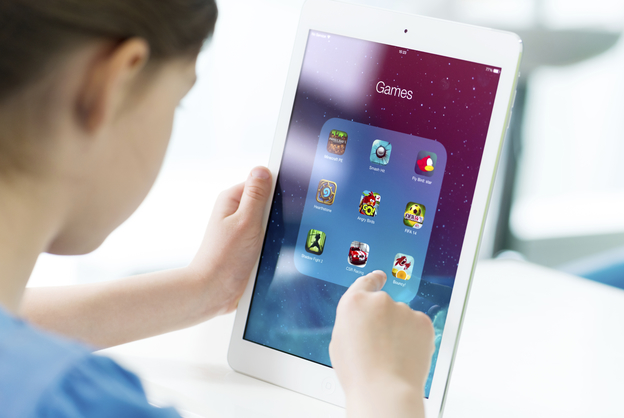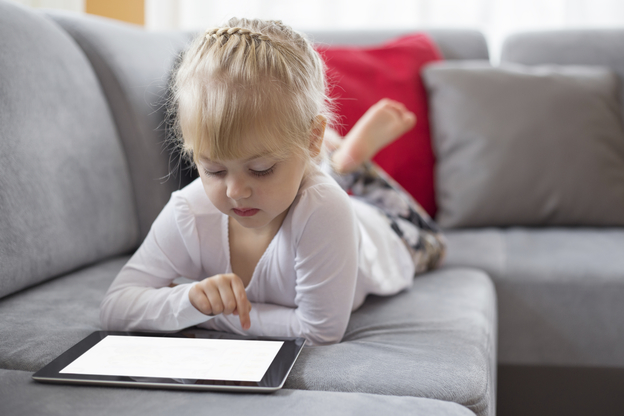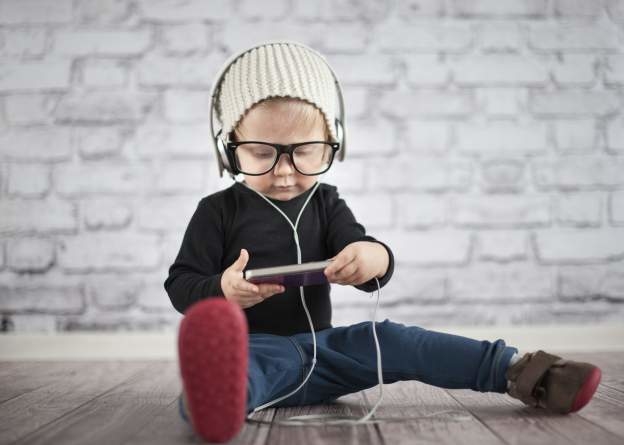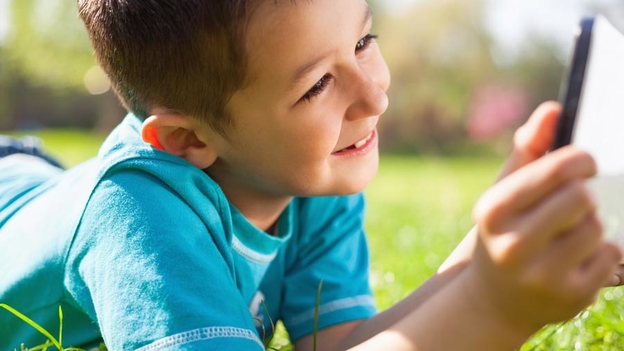SingaporeMotherhood | Preschooler & Up
June 2015
How to Handle Your Child’s Usage of Mobile Apps

Does your child play with apps? An app, short for the word “application”, refers to a special type of software programme that is used on a smartphone or a mobile device. I recently had the chance to discuss the use of mobile applications (apps) for children with Dr. Adrian Lau, Senior Psychologist at Mount Elizabeth Novena Hospital.
[banner][/banner]
While discussing the hospital’s popular “Doctor-For-A-Day” app, I asked him for his general perspective on apps and children’s usage of them. Afterall, we have been reminded multiple times that too much “device time” is bad for our young ones. But the reality is that mobile phones, tablets, watches, and other technical gadgets are currently very much prevalent and they will not be ousted any time soon.
Today, many of us accept the usage of gadgets and apps especially when they are utilised in learning environments. Many schools, even preschools, use such resources to facilitate learning in their classrooms. Dr. Lau encourages parents to look at the bigger picture, and to consider the valuable learning opportunities and potential implications of apps for their children’s education. He also suggests that parents should play an active role in managing their children’s usage of apps.
Just like movie ratings are necessary to keep children away from violence, inappropriate language, and adult themes, guidance is necessary to ensure that children remain on the right track during their use of apps.
What Is Recommended?
There is actually no official recommendation relating to children’s usage of mobile apps on smartphones, tablets or iPads. While the American Academy of Paediatrics says no to passive media influence (from video and television) and screen time for toddlers under the age of two, the organisation has no comment regarding older children’s use of touchscreen gadgets.
The Findings
There have been no significant findings recently. However, a 2013 study conducted by Common Sense Media (a San Francisco-based non-profit child advocacy group) stated that nearly 40% of children under two years old have used a mobile device – this number has increased almost fourfold since 2011.
Apart from that, one BBC article (dated 19 April 2013) highlighted a 2013 preliminary research led by the University of Wisconsin, which stated that touch or interactive screens could hold potential for early childhood learning. This study showed how children could learn faster when they have screen interaction. The study also mentioned that parents might not be good role models for their children, and that their use of touchscreen devices could be better managed in order to prevent addiction. In addition, it was also revealed that such gadgets were necessary to allow users to experience a two-way interaction. A maximum screen time of two hours was also recommended for children under six years old.
The Benefits
As researchers study the effects of exposing young children to modern technology, the use of gadgets and apps undeniably present a list of benefits. “Most apps are presented at a level that the children can understand. They are learning the concepts of kinetic energy, motion, and gravity without realising it,” says Dr. Lau with regards to the popular “Angry Birds” game.
Better hand-eye coordination: This essential skill is slowly developed as children follow directions on the screen.
Linguistic abilities: Language skills can be improved through multi-sensory engagement via e-books and online stories.
Promotes cognitive development: Children’s readiness to learn reading, mathematics and other subjects can be enhanced. Memory capacity can also be increased through familiarity with games, sequences, and consequences.
Attention span: Capacity for visual attention can be increased as children gather more details from the apps.
Increased social skills: The attainment of content knowledge and technology skills allows children to socialise with others more freely and without any embarrassment or shyness. (as they would feel more encouraged to share content)
Stay committed: Most apps or games encourage children to stay till the end. This mental endurance will encourage children to do the same in their academic journeys.
Develops problem-solving skills: Mathematics and logical reasoning come into play when children learn to take different steps while navigating through their games or apps. Every step yields a different consequence and children learn this through reasoning and understanding.
Vast field of knowledge: Children can learn from an endless field of content which includes arts, science, mathematics, languages, biology and geography!
Discover interests: Early exposure to apps allows parents to take note of their children’s inclinations. Apps can present a preview or perspective for children to determine their interests. For example, children interested in gymnastics or music can see related visual images or hear song samples.
For the less capable: Apps can also help children with learning difficulties develop certain important motor skills.
Building confidence: Apps provide a virtual environment for children to learn with confidence or without any interference.
Improving digital literacy: Technical skills are becoming more essential as schools are looking to be more equipped with technology. Such learning environments are becoming more common in our societies as teachers use different educational apps to teach mathematics, science, and languages these days.
Learning responsibility: Regardless of their age, children learn to take responsibility and adhere to their usage restrictions when they are entrusted with mobile devices.
Be Vigilant
The benefits are there but parents should not go to the extreme, and load up their devices or hand them, with no strings attached, to their children. They should read up to learn how to choose apps, and determine their objectives and purposes – are they educational opportunities or time fillers?
Dr. Lau believes that parents should always play an active role by evaluating the apps themselves first. Consider these:
– Is the app easy for the child to navigate?
– Is the app user-friendly?
– Are there any in-app purchases or pop-up advertisements?
– Are the visuals and sounds exciting and captivating?
– Are the graphic presentations useful to guide the child to the next step?
“Parents should never use apps as a babysitting option while they are engaged. Parents should continue to interact with their children while they are using the app. They should also praise them (for doing well), guide them and explain the concepts involved to them,” adds Dr. Lau. “In all situations, parents need to balance time spent on devices and real-life experiences. For example, learning about animals through an app does not equate to seeing the real animals. So, it is still important to expose them to the real world.”
In addition, geolocation apps that reveal users’ location in real time may be a concern. Parents should stay vigilant with regards to their older children’s app usage.
What Else Should Parents Consider?
The psychological impacts of mobile apps are of concern. Currently, there has not been any substantial psychological research undertaken to determine the impact of gadgets or the usage of apps on children. However, some psychologists still believe in the value of traditional play, and its critical implications for achieving developmental milestones. Most experts see the importance of physical interaction as a means to grow and learn, and they agree that apps and gadgets cannot ultimately replace crayons, puzzles, and books.
All content from this article, including images, cannot be reproduced without credits or written permission from SingaporeMotherhood.
Follow us on Facebook, Instagram, and Telegram for the latest article and promotion updates.








